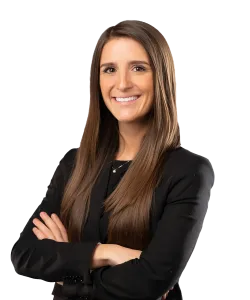Updated DMCA Exemptions Are a Win for the Automotive Industry. Could Higher Education Be Next?
The Digital Millennium Copyright Act (the DMCA) governs the protection of copyrighted material in the digital environment. Among other things, the DMCA criminalizes circumvention of digital rights management tools that restrict the use of copyrighted works and proprietary software. However, the Copyright Office issues industry-wide exemptions, which are reviewed every three years.
Summary of the DMCA
Effective October 28, 2021, DMCA Exemption 13 will allow automotive device circumvention in motorized land vehicles, marine vessels, and agricultural vehicles when necessary for the diagnosis, repair, or lawful modification of a vehicle or vessel function. Additionally, DMCA Exemption 1 will be renewed for higher education uses of protected material.
The Automotive Supplier and Service Industry Successfully Obtained Several Exemptions
In 2015, the DMCA issued an automotive exemption (Exemption 13) that gave vehicle owners the right to circumvent digital rights management in order to perform vehicle diagnostics and make corresponding repairs. However, the exemption was limited: owners could not adjust the electronic control unit telematics or entertainment systems, vehicle software alterations could not violate U.S. Department of Transportation or EPA guidelines, and, most significantly, the exemption did not allow third-parties to make repairs.
In 2018, the exemption was renewed and expanded to allow for diagnostic and repair of telematics and entertainment systems as well as circumvention by third-party service providers for diagnostic and repair work.
This year, the exemption was renewed and expanded once again. On October 28, 2021, the exemption was expanded to permit circumvention of computer programs that control the function of a motorized land vehicle or marine vessel, including personal automobiles and boats, commercial vehicles and vessels, and mechanized agricultural vehicles or vessels, if necessary for the diagnosis, repair, or lawful modification of such function. However, the exemption prohibits circumvention of computer programs accessed through a separate subscription service. The exemption will be reviewed again in 2024.
Higher Education May Continue to Use Materials for Educational Purposes
In 2018, the DMCA issued a higher education exemption (Exemption 1) that allows higher education institutions to circumnavigate technological protections in audiovisual works for educational, derivative, documentary filmmaking, criticism and comment, teaching, and scholarship purposes.
This year, the higher education industry petitioned for the renewal and expansion of the exemption. The proposed expansions sought to: (1) eliminate the requirement to consider whether screen capture technology is a viable alternative before circumvention; (2) permit circumvention of full-length movies by college or university employees or students, by K-12 educators, or by students acting under the direct supervision of an educator; and (3) allow teachers and professors to circumnavigate technological protections in DVDs and Blu-Rays.
Although the proposed expansions were denied, the Copyright Office renewed the exemption, allowing (1) faculty and students to use excerpts of digital media and motion pictures for educational purposes; (2) faculty to use excerpts of digital media and motion pictures for educational purposes in massive open online courses (MOOCs); and (3) faculty and students to use digital media and motion pictures for documentary filmmaking, or other films where the motion picture clip is used in parody or for its biographical or historically significant nature. The exemption also allows digital media and motion pictures to be used in noncommercial videos and in nonfiction multimedia e-books. The exemption will be reviewed again in 2024.
Conclusion
Arent Fox’s Copyright Team regularly advises clients on DMCA compliance. If you have any questions on how to maximize Exemption 1 or how to implement Exemption 13, please contact Brian Schneider, Lindsay Korotkin, Megan Rzonca, Destiny Planter, or the Arent Fox professional who usually handles your matters.
Contacts
- Related Industries
- Related Practices


